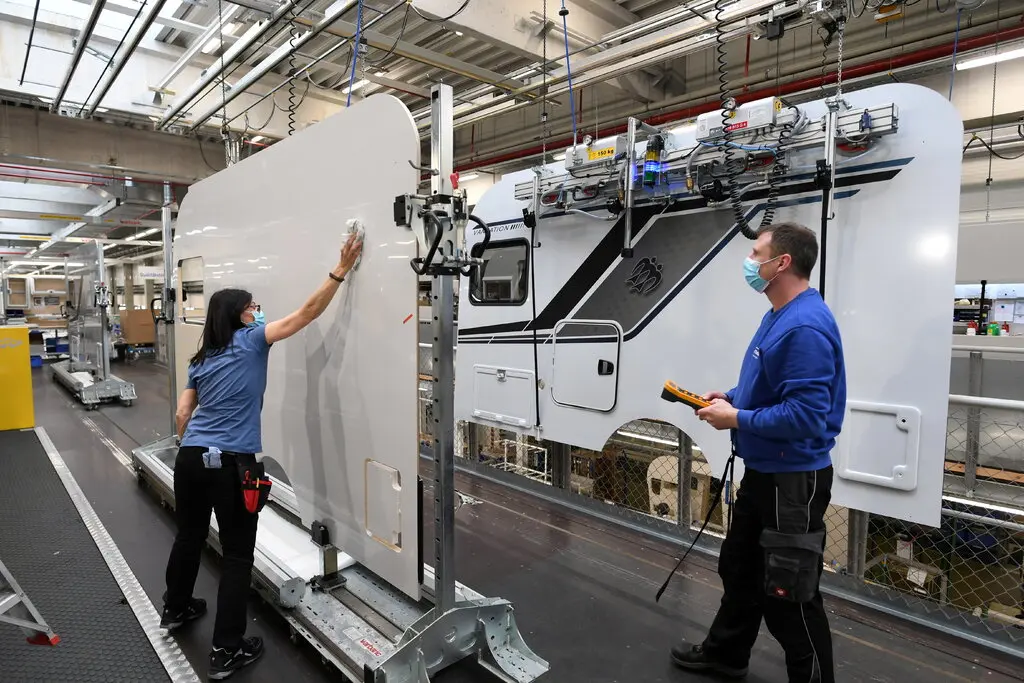The global engineering sector, particularly within the EPCI (Engineering, Procurement, Construction, and Installation) industries, is facing a challenging period. The recent news of a second consecutive year of declining German engineering orders is a powerful indicator that the industry may be entering a phase of uncertain growth, fraught with challenges that engineers, project managers, and industry stakeholders must address. This significant downturn could ripple across global markets, affecting procurement, project timelines, and operational strategies. For Nigerian engineers on the field, this news offers both a cautionary tale and an opportunity for proactive adaptation.
Germany has long been a leader in engineering and industrial manufacturing, known for its robust mechanical engineering sector and its innovation in technology and automation. In recent years, however, the country’s engineering orders have been on a steady decline. For two consecutive years, these orders have dropped, signaling a trend that could have far-reaching consequences, not just for German companies, but for the global EPCI sector as a whole.
This decline is linked to several key factors, including global supply chain disruptions, rising material costs, geopolitical instability, and shifts in demand for certain types of infrastructure. The erosion of consumer and business confidence in the wake of these disruptions has caused a slowdown in new projects. With construction timelines and budgets being squeezed, many companies are holding back on large-scale investments and expansions.
For Nigerian engineers, the implications of this decline are both local and global. With Nigeria heavily reliant on global supply chains for materials, technologies, and expertise, any ripple effect from this downturn will likely be felt here as well.
Nigerian engineers involved in the EPCI sectors should be acutely aware of how global market fluctuations can directly influence their projects. As international companies and suppliers tighten their budgets, the availability of advanced engineering technologies may become more restricted. This could lead to delays, cost overruns, and, in some cases, the scaling back of important infrastructure projects that Nigerian engineers and construction workers rely on for work.
Moreover, Nigeria’s engineering sector is already grappling with its own unique challenges, including inadequate infrastructure, a lack of advanced materials, and inconsistent power supply. The recent decline in German engineering orders only magnifies these issues, creating a perfect storm of obstacles for local engineers and project managers. Procurement might be delayed, and global competition for the limited pool of resources might increase costs for Nigerian firms. As such, Nigerian engineers must prepare for the shifting dynamics of both local and international markets.
While the decline in German engineering orders signals a rough road ahead, it also offers a valuable opportunity for Nigerian engineers to innovate and adapt. The key to navigating these challenges lies in increasing efficiency, embracing new technologies, and leveraging local resources more effectively.
In terms of procurement, Nigerian engineers can focus on fostering closer relationships with local suppliers and contractors. By strengthening local supply chains and reducing reliance on foreign imports, engineers can mitigate some of the risks associated with international market volatility.
Additionally, there is an increasing focus on sustainability and innovation within the EPCI sectors globally. This shift toward green engineering and sustainable building practices offers an opportunity for Nigerian engineers to adopt more energy-efficient and environmentally friendly technologies. Incorporating green solutions into projects not only addresses growing environmental concerns but also positions Nigerian engineers to attract more international collaborations and investments, particularly as companies seek to meet global environmental standards.
In the construction and installation sectors, focusing on cost-effective project management and execution will be critical. Engineers must embrace advanced project management tools, like Building Information Modeling (BIM), and streamline their project workflows to increase speed and minimize waste. By improving efficiency through technology, Nigerian engineers can stay competitive and ensure that their projects remain on track, even in the face of global setbacks.
Innovation remains a key strategy for success in any industry, especially in the field of EPCI. With global supply chains and resources under pressure, Nigerian engineers will have to think creatively. This might involve adopting advanced manufacturing techniques such as 3D printing for construction materials or integrating automation and AI technologies to optimize project management.
German engineering giants, known for their penchant for cutting-edge technology, are likely already exploring new innovations to counter the challenges posed by the global downturn. Nigerian engineers, by closely observing these trends, can integrate similar technologies into their own practices. For instance, adopting smart construction technologies such as drones for surveying or robotic systems for heavy lifting can significantly reduce labor costs and increase efficiency in the long run.
The decline in German engineering orders may signal a period of contraction in the global industry, but it is not necessarily a harbinger of doom. For Nigerian engineers, the key to weathering these challenges lies in being proactive, adaptable, and innovative. By shifting towards more sustainable, locally sourced solutions and embracing cutting-edge technologies, Nigerian engineers can remain competitive in a changing market.
It’s time for Nigerian engineers to rise to the challenge, transforming adversity into opportunity. Those who can effectively navigate this period of uncertainty and adopt forward-thinking strategies will position themselves as leaders in the global EPCI sector.
Now is the time for Nigerian engineers to equip themselves with the tools and knowledge needed to navigate this challenging landscape. Stay ahead of the curve by keeping up with global trends, embracing innovation, and expanding your network of local suppliers and partners. For more insightful articles on how to thrive in the EPCI sector and overcome industry challenges, sign up to epci.ng and gain access to expert-level guidance and resources that will propel your career forward.
Get the latest updates on Energy, Construction, Engineering, and Cryptocurrency. Join us on WhatsApp or Telegram for real-time news. Have a report or article? Send it to report@epci.ng. Follow us on X (Twitter), Instagram, LinkedIn, and Facebook for more industry insights.
